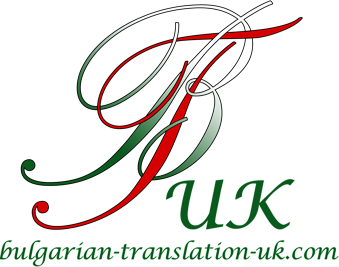We are able to translate any kind of document or text that is written in either Bulgarian or English, whereby we separate documents types into two categories: documents for official use (with governmental or other official bodies); and documents not for official use. The definitions of each can be found below.
Documents for non-official use
Where a document or text is not required for use in an official setting with a governmental or other similar body, there is no need for the document to be legalised. Examples of this kind of document include but are not limited to dissertations/theses, books, online/website content, letters, commercial documents which do not need to be submitted to the state, datasheets and technical specifications, plays, screenplays, and many others.
Please note that depending on the intended use, certain non-official documents may also need to be legalised and/or notarised, such as certain medical documents, contracts and others.
When you send us your enquiry, we will respond with a quotation via email, which will specify the rate offered, the expected turnaround time and any other information and conditions related to the services offered. To find out more about our prices, please see our Pricing page. We may also ask for additional information before sending a quotation.
Once you have accepted the offer and, if necessary, signed a Translation Services Agreement, we will translate your text within the agreed time frame and will send the finished translation to you by email or as otherwise agreed.
Please contact us via e-mail or telephone to submit your enquiry and receive a quotation, as well as for some advice if you are unsure whether your document requires any legalisation.
Documents for official use
Documents for official use means any document which is being translated with a view to being presented to or used by a government department, agency or other body, or any other organisation with a similar status. In order for such a document to be accepted by the body it is being presented to, it usually needs to fulfil certain specific requirements with regard to legalisation.
Most documents which are issued by the state automatically fall into this category, such as birth, death or marriage certificates, company incorporation certificates, ACRO (police) certificates, etc. Certain other types of documents may also need to fulfil these legalisation requirements if they are to be used in an official setting, and these can include documents like degree certificates, powers of attorney, affidavits, court rulings/judgements, medical certificates, bids for public procurement tenders, and a wide variety of other documents, often of a legal nature. Please contact us to find out if this is the correct category for your documents.
In addition to translating your documents, we are also able to offer several services to assist with the legalisation process. If you would like to enquire about our services and to receive a quotation, please contact us by e-mail or telephone.
As with the translation of documents for non-official use, when you send us your enquiry, we will either ask for additional information before sending a quotation or we will respond with a quotation via email, which will specify the rate offered, the expected turnaround time and any other information and conditions related to the services offered. To find out more about our prices, please see our Pricing page.
If your document has not yet been legalised and you would like to do this yourself, we will send you some useful information and links to assist. If you would like us to provide the legalisation service for you, we will send you full instructions on what to do and where to deliver your document. Once your document has been legalised, you will need to send us the original legalised document to which we will append our official translation (unless we provided the legalisation service, in which case we will already have it). You can scan and email us the text of your document in advance so that we can start the translation earlier, however we must have the original legalised document before signing the translation and appending it.
Once your document has been duly legalised and translated, it needs to be certified at the Bulgarian Embassy in London, which is the final (and mandatory) step of the process. You are able to take this final step yourself and the relevant pricing and further information can be found on the Bulgarian Embassy website. Alternatively, this service can also be carried out by Bulgarian Translation UK, in which case it will be included in the price offered.
Please note that although documents for official use incur additional fees for legalisation, documents intended for official use but not translated in this way and not meeting the legalisation requirements will be rejected by the body you present them to. It is therefore in your best interests to always ensure that you err on the side of caution and if you are at all unsure which category applies to your document(s) and their intended use, please contact us for further information and advice. We will provide full advice based on the information we are given but cannot provide refunds to clients who insist on translating a document without legalisation and later have that document rejected by an official body.
Legalisation
For documents issued by the state or certain other authorities, such as by the police, the first step of legalisation is to obtain an Apostille certificate from the country of origin of the document (eg. a British birth certificate needs an Apostille from the UK). This is a certificate issued by a government department to certify that the signature/stamp on document is genuine, in accordance with the Hague Convention of 5th October 1961 (for states which are a party thereto, including the UK and Bulgaria).
For documents which are not issued by the state but which still need to be legalised (eg. Power of Attorney, education certificates, etc), you will first need to get your document certified by a solicitor or notary public, in accordance with the national laws of the state of origin of the document. In addition to notaries public, Embassy consular departments can also perform this function, if for example, you wish to notarise a Bulgarian document whilst in the UK. Once you have notarised your document, you will then have to obtain an Apostille, just like with state-issued documents unless the notarisation has been carried out by the Bulgarian Embassy in London (for Bulgarian documents).
For British documents, an Apostille can be issued by the UK Foreign, Commonwealth and Development Office (FCDO). For Bulgarian documents, an Apostille can be issued by the Bulgarian Ministry of Foreign Affairs (MFA) or your local Municipality. For documents originating from other countries, please contact us to confirm the correct legalisation procedures.
An Apostille can either be obtained directly by the client from the respective government department, or Bulgarian Translation UK can provide this service for you for UK documents only. In any case, an Apostille needs to be appended to each document that requires legalisation, except where multiple documents have been certified together as a single bundle by the solicitor or notary.
We offer two types of legalisation services:
- Standard service (15-20 working days)
- Express service (1-2 working days)
Please contact us in order to arrange for the legalisation and translation of your documents, or for the translation of your already legalised documents. Alternatively, if you would like to arrange for legalisation yourself, please see our Useful Links page for the respective websites.






